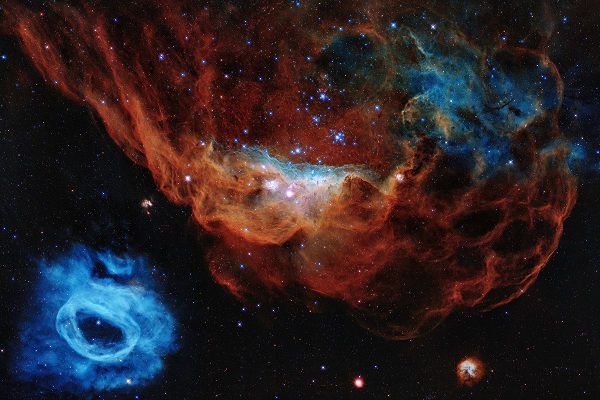Hubble Telescope Releases 30 New Cosmic Pictures
- jacksonhenry297
- Dec 16, 2020
- 3 min read
This December, the Hubble Space Telescope turned 30. On this occasion, NASA decided to release thirty new images captured from the Hubble Space Telescope. It was one of the finest ways to celebrate the glory of this event. The latest pictures feature thirty dazzling galaxies, sparkling star clusters, and ethereal nebulae present in the universe. Before NASA released these images, NASA itself had not done the image processing over them.

About Hubble Space Telescope
Hubble Space Telescope is the scientific juggernaut that NASA launched in 1990 with the European Space Agency (ESA). Named after the famous inventor Edwin Hubble, it is one of the essential observatories, apart from the Spitzer Space Telescope, the Chandra X-ray Observatory, and Compton Gamma Ray Observatory. The HST comprises a Cassegrain mirror with Ritchey–Chrétien design. There are four vital components and instruments that observe the electromagnetic spectrum in the visible, ultraviolet, and near-infrared regions. Hubble Space Telescope hovers just above the Earth’s atmosphere in the Low-Earth Orbit (LEO). The placement and arrangement of the telescope ensure high-resolution images captured with substantially lower background light. To take steady and accurate images, it locks onto a target without deviating more than 7/1000th of an arcsecond, or about the width of a human hair seen at a distance of 1 mile. To date, Hubble Telescope has done more than 1.3 million observations since its launch.
30 Pictures on 30
Hubble captured more than 50 images, out of which 30 belongs to a particular type of category. It was Sir Patrick Caldwell Moore who collected the images of these celestial objects for the first time. The Sky & Telescope magazine published this catalog in the year 1995. Caldwell’s record finds its inspiration from French comet-hunter Charles Messier, who collected 110 bright but fuzzy objects in the northern hemisphere’s skies. The images collected by Caldwell highlights 109 galaxies, nebulae, and star clusters that were not present in Messier’s archives and records. Besides this, Caldwell also separated the objects in the sky based on the northern and southern hemispheres. The Hubble Space Telescope collected these images throughout its current lifespan. Scientists of NASA use these images for scientific research. Images released by NASA take the total count of Hubble’s collection to 87.
Some Specific Caldwell Objects
Some of the Caldwell objects spotted by the Hubble Space Telescope are:
Caldwell 84: It is a spherical globular star cluster composed of observations. The image uses the spectrum from visible and ultraviolet light. To capture the image, Hubble has used the advanced camera for surveys and the wide-field camera.
Caldwell 18: It is a dwarf galaxy that acts as a satellite of the Andromeda galaxy. Known as NGC 185, Caldwell 18 is a part of the Local Group of galaxies. Caldwell 18 has an active galactic nucleus in the galaxy’s central region. This nucleus emits a significant volume of radiation.
Caldwell 40: It is a galactic bulge that encompasses a spiral galaxy’s heart and hosts supermassive black holes. Hence, the mass of the galactic bulge and black hole comes in inter-linkage. So, if the galactic bulge’s mass increases, it will accommodate bigger black holes in it.
Caldwell 53: Known as NGC 3115, it is like an intermediate between the elliptical and spiral galaxies. It hosts an elderly stellar population that has exhausted and used up all of its star-formation materials.
Conclusion
The quest of the Hubble Space Telescope to show Caldwell’s new images on its turning 30 is gaining curiosity to know the other facets of the universe. In ten days, Hubble has showcased the Caldwell catalog and the fading effect of Stingray nebula. Since its launch in 1990, Hubble has made more than a million observations that have helped humanity understand the planetary and other heavenly objects in a better way.



Comments